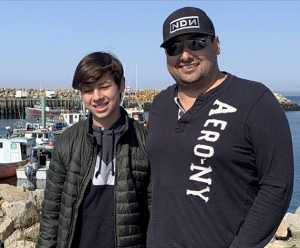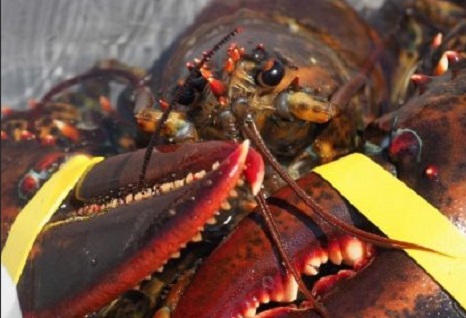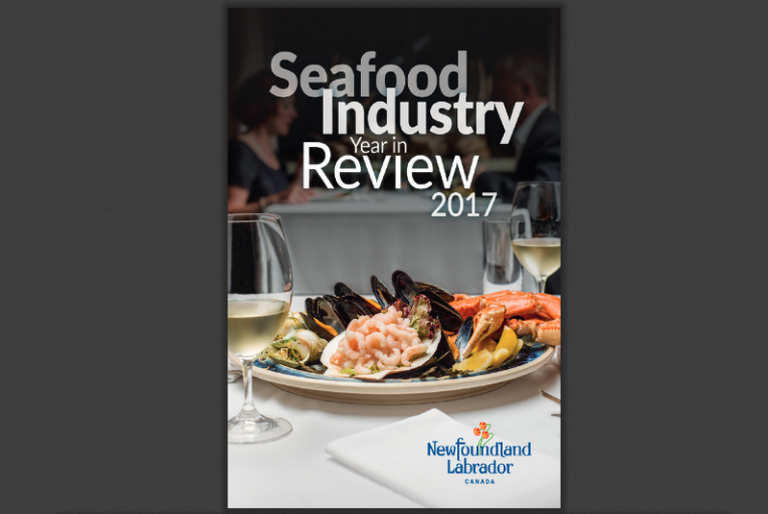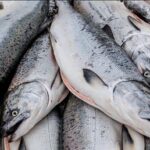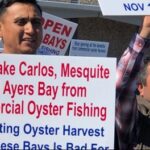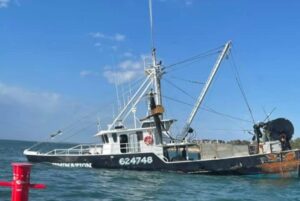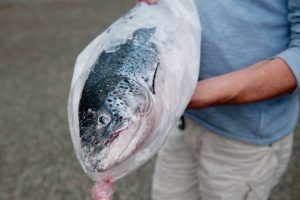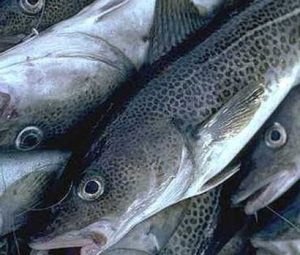Tag Archives: Sipekne’katik First Nation
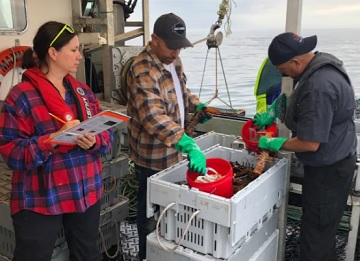
Sipekne’katik First Nation’s lobster study to assess impact of summer and fall fishing
The boat, Mamma Ain’t Happy, is owned by Sipekne’katik First Nation and is fishing under food, social, and ceremonial (FSC) tags. The tags are the licence under which the lobster can legally be fished and allow the band to harvest it for those purposes but not to sell it. After each trip, the catch is brought back to the community for lobster giveaways that feed most of the families in the second-largest Mi’kmaw band in Nova Scotia. But this boat doesn’t just fish for people’s supper. It’s also a data collection site for a study on lobster conservation. >click to read< 13:48
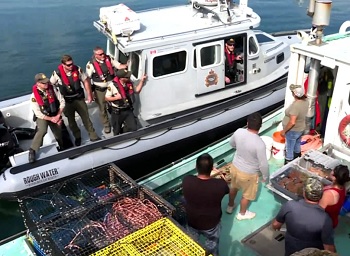
Mi’kmaw vow to keep fishing despite harassment from DFO officials
The crew of the Sadie C, a Sipekne’katik Mi’kmaw lobster boat was out on the bay exercising their treaty rights when it was surrounded by six zodiacs and one large coast guard vessel. The crew dropped ten traps, which the fisheries officers immediately seized. Marcel Marr, captain of the Sadie C, says he will keep fishing. “Someone’s got to stand here and fight the fight so it might as well be me if I want further generations or my children to participate in our aboriginal fisheries,” says Marr. >click to read< 19:54
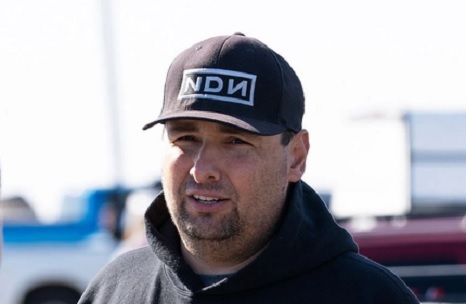
Arrested by the Feds! Chief Mike Sack busted “for promoting an illegal fishery.”
The chief of Sipekne’katik First Nation has been arrested by federal fisheries officers on the day the band’s new treaty fishery launched in southwest Nova Scotia. Chief Mike Sack was arrested on Monday, taken to the Meteghan fisheries office and later released. DFO has not provided details of why Sack was arrested, or whether he could face charges under fisheries legislation. ‘Why would you arrest me? I haven’t done anything here,'” he said. “It just seems to be all scare tactics for the fisheries, to try to stop what we have going on.” >click to read< 15:59
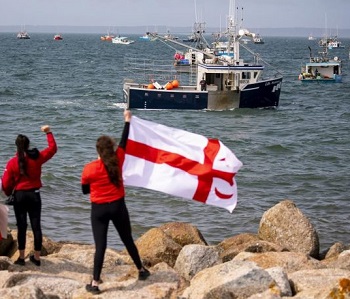
No longer using term ‘moderate livelihood fishery’, Sipekne’katik treaty fishery to open Monday
The Sipekne’katik Fisheries Department said it is no longer using the term “moderate livelihood fishery,” because many in the community view it as a phrase coined by Ottawa following a 1999 Supreme Court of Canada decision. Mi’kmaw fishers in Nova Scotia argue that the Supreme Court decision affirms their treaty right to fish for a moderate livelihood when and where they want, including outside the federally regulated commercial fishing season. Sipekne’katik Chief Mike Sack said about 15 to 20 boats will be participating in the fishery, employing roughly 100 people. “It’s very good economic spinoff for our community,” said Sack in an interview Friday. “It doesn’t make anybody rich, it just puts food on tables.” DFO could not immediately be reached for comment Friday. >click to read< 19:38

Treaty rights are a provincial and federal election issue says Sipekne’katik First Nation Chief Mike Sack
The fishery offers the Mi’kmaw community in central Nova Scotia a path out of poverty, Sack said. But the strict restrictions on what Indigenous fishers can catch and sell further perpetuates the cycle of injustice,,, Indigenous fishers in Nova Scotia argue that a 1999 Supreme Court of Canada decision affirms the Mi’kmaw treaty right to fish for a “moderate livelihood” when and where they want, including outside the federally regulated commercial fishing season. Some critics, however, are quick to point out a clarification later issued by the court saying the treaty rights would be subject to federal regulations. >click to read< 16:52

Sipekne’katik First Nation lobster boats cut loose from a wharf in Nova Scotia.
The chief of the Sipekne’katik First Nation, Mike Sack, issued a statement saying the boats were cast adrift from their berths in Weymouth North, N.S., with the “intent to cause damage and intimidate the community.” Sack says the boats were ready to take part in the band’s food, social and ceremonial lobster fishery, which is regulated by federal rules but is not limited to a particular season. >click to read< 17:53
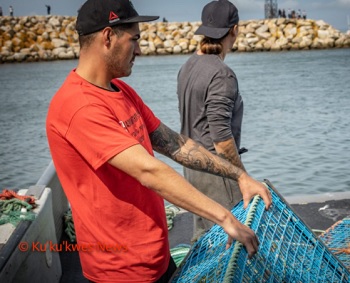
Sipekne’katik fisherman says delay in fishery launch the smart decision for now
Robert Syliboy, a member of the Sipekne’katik First Nation in Nova Scotia, said his community’s decision to delay the start of its own fishery this week was the smart thing to do for now. “,, Sipekne’katik Chief Mike Sack said concerns over safety is the main reason he and council members decided to postpone the start of the First Nation’s fishery for the time being. Lobster Fishing Area 34 in St. Mary’s Bay is currently closed to commercial fishing until the last week in November. >click to read< 08:07
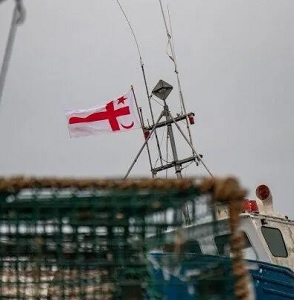
The Sipekne’katik First Nation has indefinitely postponed the start of a communal lobster fishery
The band said it was concerned for the safety of its fishermen and lacked resources to launch the fishery in St. Marys Bay. “The reality is that we would need to provide our own security and police our own gear getting seized and it feels like a costly prospect for our community after all that we have lost,” Chief Mike Sack said in a news release. The decision to postpone came following an emergency meeting of fishermen at Sipekne’katik on Wednesday morning. >click to read< 14:06
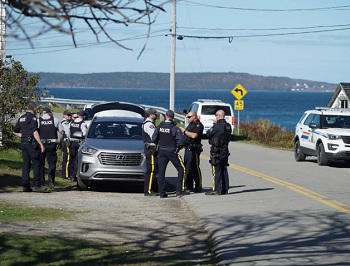
As tensions rose during N.S. fisheries dispute, province balked at paying for extra RCMP
The Mounties have faced scrutiny for their handling of the tensions that followed the launch in September of Sipekne’katik First Nation’s self regulated fishery in St. Marys Bay. Critics included federal Indigenous Services Minister Marc Miller who said the force should have done more to protect Mi’kmaw harvesters,,, It’s unclear what impact, if any, the financial approvals had on the RCMP’s staffing plans. “The number and type of RCMP resources that were deployed was based on operational needs,” Cpl. Chris Marshall, an RCMP spokesperson, said in an email. “In order to protect officer and public safety, we don’t discuss our operations, tactics and resources.” >click to read< 07:55

Sipekne’katik may seek United Nations peacekeepers for contentious N.S. fishery relaunch
The Sipekne’katik First Nation says it is considering asking the United Nations to send peacekeepers to police the self-regulated lobster fishery it plans to relaunch in southwestern Nova Scotia outside the commercial fishing season. On Thursday, Chief Mike Sack said Sipekne’katik fishermen will return to St. Marys Bay in June despite warnings in March from federal Fisheries Minister Bernadette Jordan that her department will enforce rules prohibiting commercial lobster fishing outside of commercial seasons. “We’re going to send a letter off to the United Nations and hoping that they can come and keep the peace. And it was very obvious to me that we couldn’t rely on the RCMP or DFO,” Sack said. >click to read< 08:44
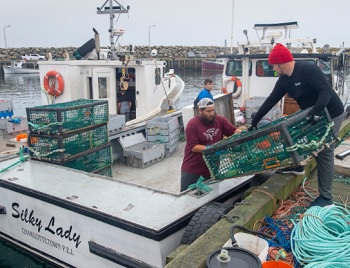
Crab traps seized by DFO during food fishery-Mi’kmaq fisher argues feds becoming more aggressive in seizures
Robert Syliboy and his crew dropped ten traps into the deep waters of the Atlantic Ocean to harvest snow crab for a community feast.,, He said the crab traps were seized before he reached the shore. video, >click to read< Mi’kmaq fisher argues feds becoming more aggressive in seizures of Indigenous gear -“I told fisheries officers I was fishing under the chief and council’s authority, and all the fish was going for food,” Syliboy said. “They disregarded the treaty I was fishing under.” The Indigenous band has cited Supreme Court of Canada rulings, including the Sparrow case in 1990, as affirmations of the Mi’kmaq practice of harvesting fish for ceremonies, food and gatherings. >click to read< 08:42

Sipekne’katik First Nation has filed a lawsuit against non-Indigenous fishers, the RCMP and the Feds
In a statement of claim filed Friday with the Nova Scotia Supreme Court, the Sipekne’katik First Nation alleges that commercial fishermen stole and damaged hundreds of band members’ traps and engaged in a co-ordinated campaign of intimidation and harassment. The lawsuit alleges that between 75 and 100 boats operated by non-Indigenous fishers headed to St. Marys Bay near Saulnierville, N.S., where they were used in late September 2020 to “intimidate and harass one or more of the plaintiffs, and to steal or damage their lobster traps.” None of the allegations has been proven in court. A representative for the non-Indigenous fishers could not be reached for comment. >click to read< 19:01

Crown-Indigenous Relations should take the lead on the Nova Scotia lobster dispute, pointing to DFO’s lost credibility.
The Liberal government’s “new path” that has been broadly rejected by Atlantic First Nations is an “interim measure,” says Liberal MP Jaime Battiste, to address moderate livelihood fishing,,, Mr. Battiste (Sydney-Victoria, N.S.) is one of three Mi’kmaw Parliamentarians, who together offered solutions to the conflict that has persisted since September,,, For Mr. d’Entremont, part of the problem, though, is that the matter has become an Indigenous relations issue, because of the longstanding problem with DFO’s approach, and lack of enforcement. “We’ve gotten too far into Indigenous rights and what an agreement, or a treaty back in [1760] told us. It’s hard to apply it to today’s economy, in today’s fishing industry, and I don’t know how to fix that,” he said. Mr. d’Entremont acknowledged it’s a perspective that would make some “very mad.” “I recognize the right, but I understand the right can be regulated,” he said. >click to read< 18:00
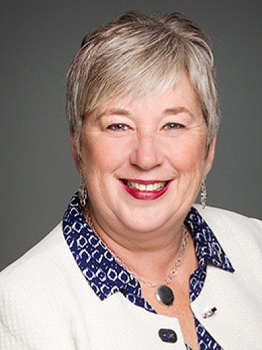
Bernadette Jordan: Fisheries officers will enforce the rules. Moderate livelihood fisheries must take place within the commercial season
Anyone caught harvesting lobster outside the commercial fishing season this year will have to contend with fisheries officers, says federal Fisheries Minister Bernadette Jordan. The minister was referring to Mi’kmaw chiefs in Nova Scotia who have uniformly rejected the federal governments mandate that all moderate livelihood fisheries must take place within the commercial season. The Mi’kmaw chiefs say they intend to defy the federal government and fish out of season again this year. They say the federal mandate was imposed without adequate consultation or scientific justification. >click to read< 18:15
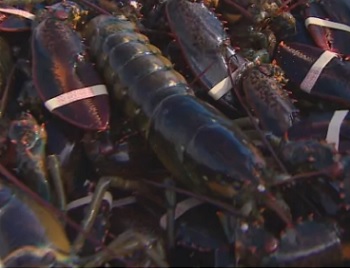
Conserving lobster stocks: Lobster landings data released by DFO show complex picture
Both Mi’kmaw fishers and people who work in the commercial fishing industry say conservation is a key concern. Some in the commercial fishing industry have pointed to declining lobster catches as evidence of potential harm to the fishery. The Bay of Fundy Inshore Fishermen’s Association has said it has concerns about the amount of lobster being landed in St. Marys Bay, which it says has declined 68 per cent since 2016. Fisheries and Oceans Canada released data showing a decline from the record highs in 2015-16. However, an examination of the 18 years of data shows a nuanced picture. >click to read< 08:10

Feds say all fisheries must operate within the commercial season. Mike Sack says ‘not going to happen’
Fisheries Minister Bernadette Jordan said in a statement on Wednesday that Ottawa will not issue licenses to fisheries that operate outside the federal commercial season. Last fall, the Sipekne’katik First Nation in Nova Scotia launched its own self regulated, rights based lobster fishery outside the federal fishing season, sparking a violent backlash from commercial fishers. Sack says the federal government has no right to impose its rules and regulations on the Mi’kmaw, and that Sipekne’katik’s fishery will be back this year — bigger and better than ever. >click to read< 07:51

DFO Path Forward Rejected – ‘We’re going to establish our own fishery’
“We’re going to establish our own fishery and our seasons outside of theirs,” Chief Mike Sack said Wednesday. “We’ll push our own season and determine what those months are going to be.” Sack was responding to a letter from Fisheries Minister Bernadette Jordan that said any moderate livelihood fishery must operate under the rules and regulations of DFO’s commercial fishery. Then the letter spells out the rules under which any moderate livelihood fishery would be negotiated and what Canada is “prepared” to allow,,, Sack said none of that was acceptable. >click to read< 07:17
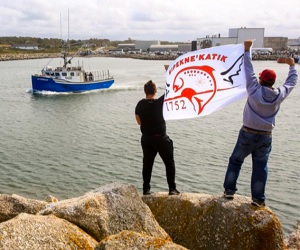
First Nation has right to catch lobster, but N.S. laws mean they can’t sell it. New court fight targets ‘economic racism’
A First Nation trying to establish its own self-governed lobster fishery is setting its sights on the Nova Scotia government. “We’ve always said that we’re going to hold everyone accountable for their actions,” Sipekne’katik Chief Mike Sack,,, “This is just finally coming to the forefront.” “We are more resolved than ever to bring this to court, as we have lost so much in the face of the violence and economic racism aimed at us from the commercial fishery throughout the fall,” >click to read< 08:10

Sipekne’katik files court action against Nova Scotia to claim fishing treaty right
The Sipekne’katik First Nation has filed a court action against the Attorney General of Nova Scotia to challenge a provincial regulation on purchasing fish products, saying it’s unconstitutional.,, The Sipekne’katik First Nation launched its moderate livelihood lobster fishery in September 2020,,, Though the term “moderate livelihood” was not formally defined by the court, a subsequent decision ruled that the government has the authority to impose some regulations for the purposes of conservation, subject to nation-to-nation consultations. >click to read< 10:09
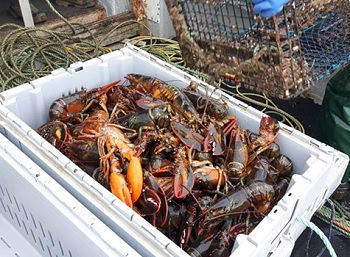
Livelihood lobster fishing cast adrift: How DFO’s inaction has history repeating itself
Its resources are in high demand by Indigenous and non-Indigenous fishers alike, and for more than 20 years it has seen tensions between the two communities turn from boil to simmer, to boil again. Recently, it made headlines internationally. Tensions in the area erupted into violence and destruction after the Sipekne’katik First Nation launched its own, self-regulated fishery, outside of the commercial season, based on Mi’kmaq treaty rights. To Alex McDonald, one of the oldest still-fishing Indigenous lobster boat captains of the area, the chaos this year was nothing new. >click to read< 08:14

Sipekne’katik lobster fishery closed for the season
Over the course of the season, Sack said Sipekne’katik harvesters caught and sold close to 55,000 kilograms of lobster. Selling their catches had been a problem for Mi’kmaw harvesters earlier in their season because provincial regulations prohibit buyers from purchasing anything caught outside a commercial fishing license. But in the end, Sack said everything his community caught was sold — although he wouldn’t say exactly where. >click to read< 08:05

21 arrested in N.S. lobster conflict; Mounties release photos of persons of interest
Nova Scotia RCMP have arrested 21 people so far in relation to criminal activity by a large group at a southwestern, N.S. lobster pound on Oct. 13, and are asking the public for help in continuing to identify persons of interest. RCMP confirmed that about 200 people were present at two incidents Oct. 13 outside a facility in Middle West Pubnico, N.S., which was storing lobster caught by members of the Sipekne’katik First Nation,,, On Friday, the Mounties issued a brief statement with photos, saying they were seeking public’s help in identifying suspects who engaged in criminal activity. Video, >click to read< 15:58

Sipekne’katik First Nation Chief frustrated, ceases lobster fishery talks with feds
In a letter sent Wednesday to Fisheries Minister Bernadette Jordan, Sipekne’katik Chief Mike Sack says the department has neither the “desire nor the ability” to recognize and implement the Mi’kmaq band’s constitutionally protected treaty right to fish. Sack expresses frustration with the nation-to-nation discussions and says Ottawa has tried to lump his band’s treaty rights in with regulation of commercial licenses. A spokesperson in the minister’s office was not immediately available for comment. >click to read< 14:31
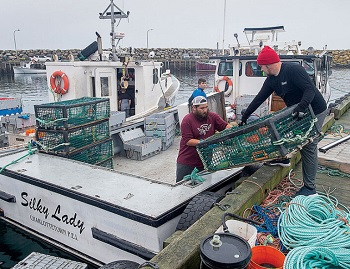
Why a clash over crustaceans is roiling Canada
It’s a battle about jobs and livelihoods, ethnic identities and cultures, and deeply embedded family and social traditions. Yet it’s also a clash about something else: the future of what was once one of the most fecund fisheries in the world. Both sides recognize they have a shared interest in keeping the industry thriving in a place that has been traumatized by declining fish stocks. This is especially true at a time when the pandemic has temporarily cut off customers for the area’s succulent crustaceans. >click to read< 19:05

‘The Crown’s honour is at stake’:Indigenous chief makes appeal to Justin Trudeau as fisheries deal rejected
A first draft memorandum of understanding was sent by the Department of Fisheries and Oceans to the Sipekne’katik last week,,, The proposal, which was received with optimism, included the capacity for the Sipekne’katik to legally sell its moderate livelihood catch, which has been problematic for the band. But according to Chief Mike Sack, the government offer fell far short of what he had expected, In an open letter to Prime Minister Justin Trudeau on Friday, Sack wrote: “Although we had tempered our response of this first draft as a potentially groundbreaking and historical understanding, Sipekne’katik remains very disappointed in the draft documents’ intent and content.” “The Crown’s honour is at stake, >click to read< 18:47







